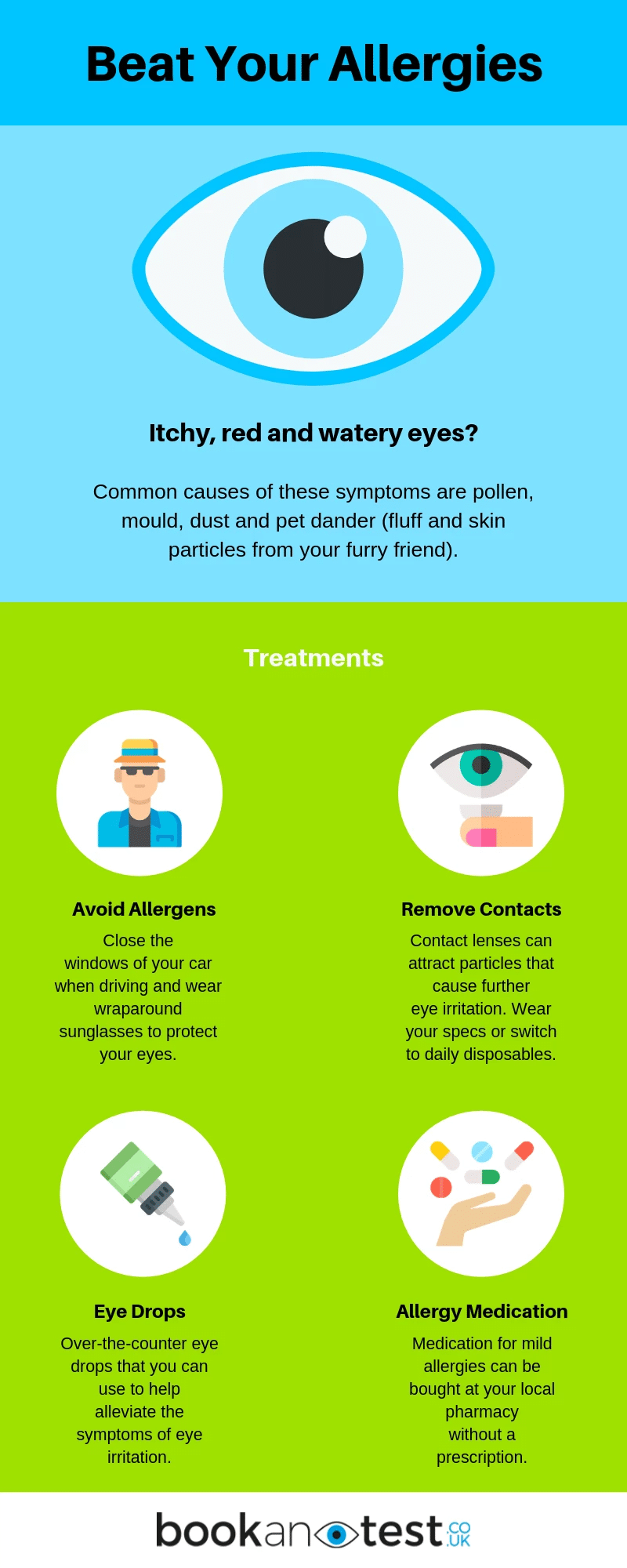Relieve the symptoms of eye irritation caused by allergies
Summer is here!! Finally, it seems…but along with the sunny weather comes humidity, dust and pollen. All of which can affect the comfort of your eyes.
If you suffer from itchy, red and watery eyes, something environmental could be causing these allergies. Common causes of these symptoms are pollen, mould, dust and pet dander (fluff and skin particles from your furry friend). Interestingly, food allergies and bee stings tend not to have symptoms that effect the eyes in the same way as airborne particles.
One important note: If you’re experiencing itchy eyes and other allergy symptoms, it’s a good idea to see your doctor for a professional diagnosis. It could be something else with allergy like symptoms, such as a stye, which is a swollen gland on your eyelid, or even conjunctivitis, a highly contagious infection.
There are several measures that can be taken to help relieve the symptoms of irritation.
- Avoid allergens – this is easier said than done, but if you know what is causing your symptoms, then reducing your exposure will really help. For example, closing the windows of your car when driving will reduce the amount of pollen coming in and wear wraparound sunglasses to protect your eyes. You may also want to leave your shoes outside to avoid walking pollen into your home. As this method isn’t always entirely practical, you could try some of the other measures in this list.
- Remove your contact lenses – Contact lenses can attract particles that cause further eye irritation. So, on a day when you know that the pollen count is high, maybe wear your specs. You could also talk to your contact lens specialist about switching to daily disposable lenses that are thrown away after being worn.
- Use eye-drops – there are many over-the-counter eye drops that you can use to help alleviate the symptoms of eye irritation. Your optician will be able to advise which would be the best to suit you.
- Allergy Medication – medication for mild allergies can be bought at your local pharmacy without a prescription, but remember to always check with your GP or pharmacist before starting any new medication.
If you are unsure about whether you are suffering from eye-allergies or if you have any other visual symptoms, we would recommend booking a sight test to thoroughly check both your vision and the health of your eyes and to make sure that the best course of action is recommended by a trained professional.

Related articles





